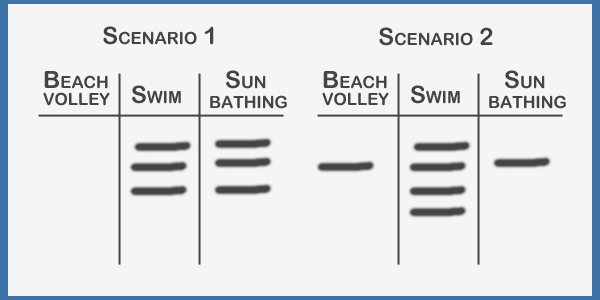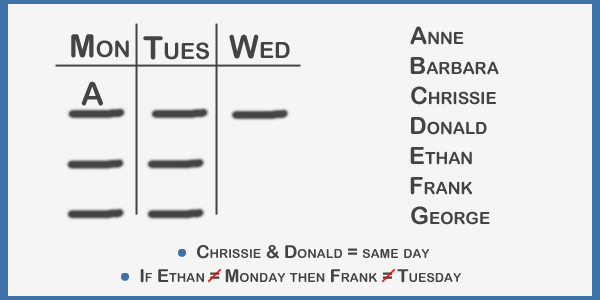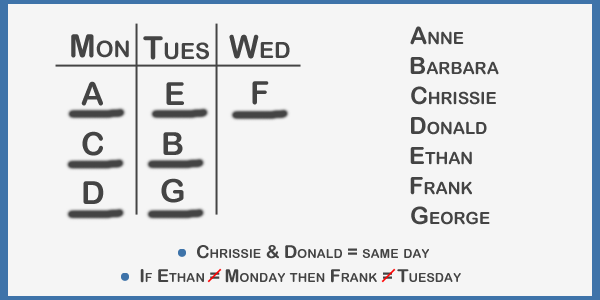Grouping setups

Grouping setups include assigning people to shifts or determining which activities a group of people choose to participate in.
The above setups are slightly different in that in the first scenario, people are placed in shifts, whereas in the second scenario, activities are assigned to people.
Order is of no significance in grouping scenarios. If both Pierre and Lina are in group A and group A has precisely two people, it doesn't matter who was first or second.
Grouping arrangements may sometimes feature the more straightforward 'in/out' rule, whereby either someone is in a group or not.
Click here for ordering setups.


